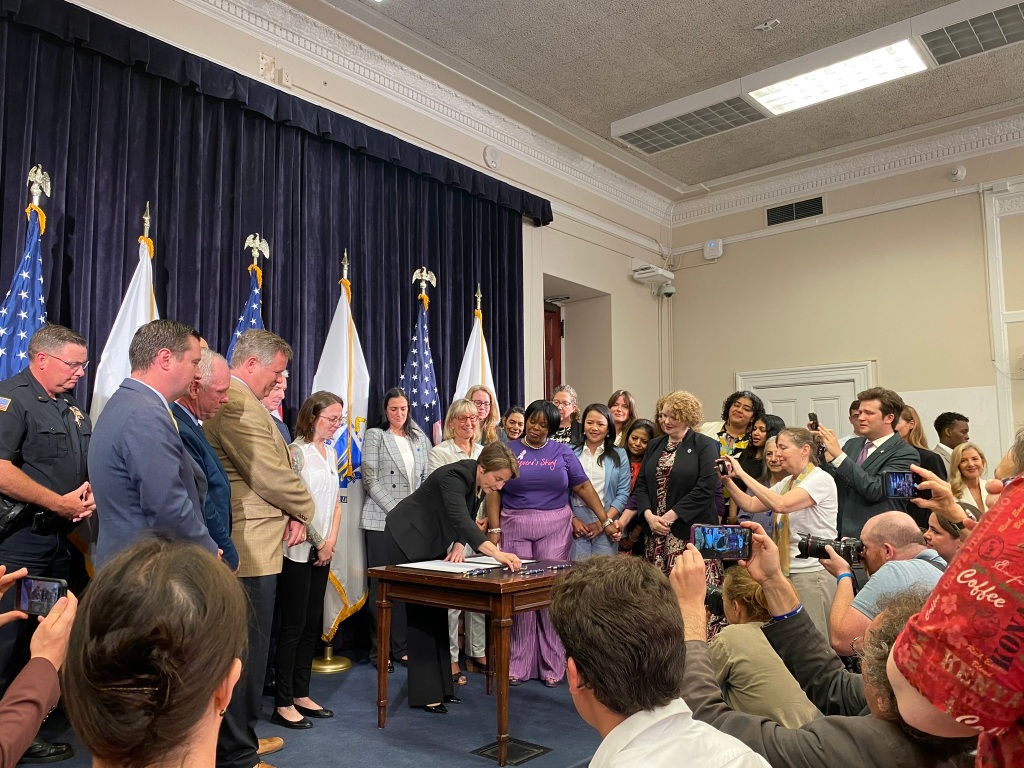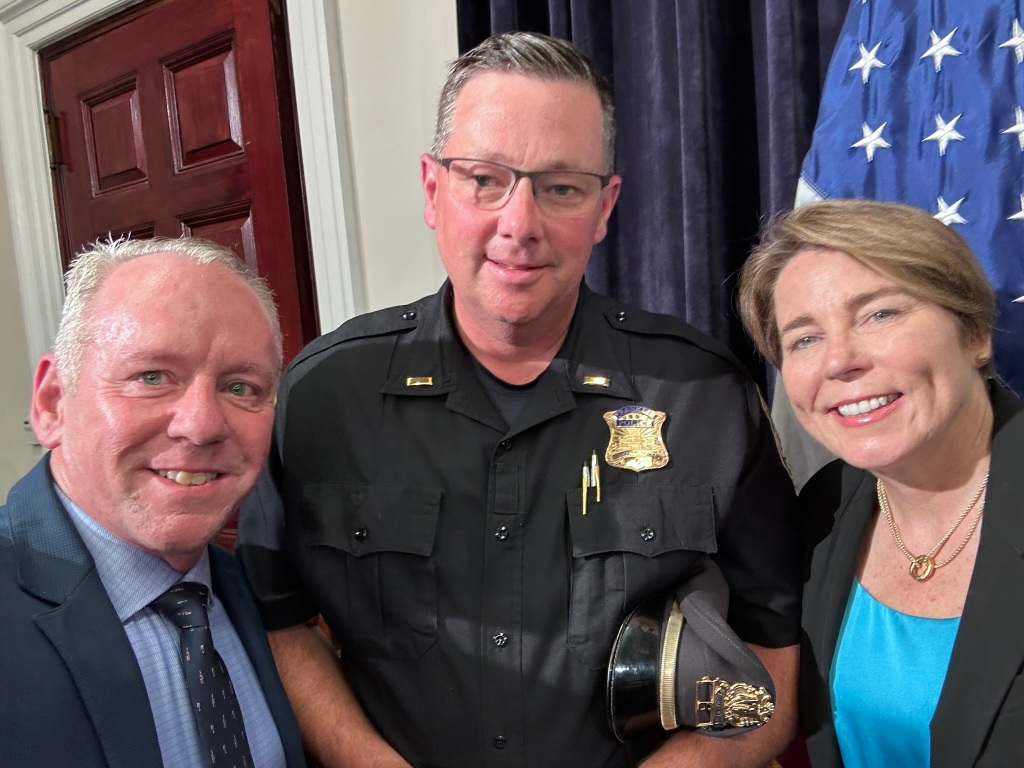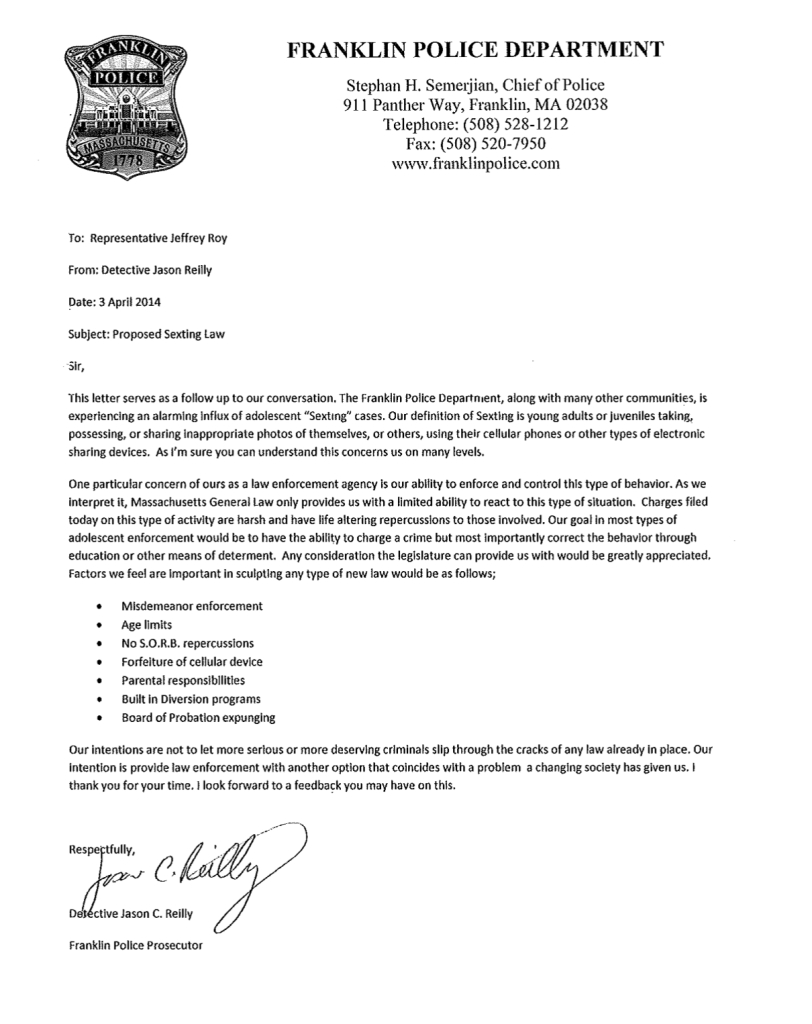The Governor signed into law An Act to prevent abuse and exploitation, which seeks to prevent abuse and exploitation, strengthen protections for survivors, and enhance education for young people about the dangers of sexting and deepfakes.
The law adds Massachusetts to the states that have acted to prohibit image-based sexual assault – sometimes referred to as “revenge porn,” which is the non-consensual sharing of explicit images. The law extends to “computer-generated images,” such as “deepfakes,” which have recently caused alarm. It will also expand the criminal harassment statute to prohibit the distribution of sexual images without consent and increase the maximum fines for criminal harassment convictions.
The new law also addresses teen sexting provisions from a bill filed by State Representative Jeffrey N. Roy (D-Franklin). Rep. Roy worked with Franklin Police Lt. Jason Reilly for several years to make these changes to the law. The work began with a conversation and memo from Lt. Reilly in April 2014 and led to years of collaboration, research, and testimony.
Currently, minors who possess, purchase, or share explicit photos of themselves or other minors are charged with violating Massachusetts child pornography laws and are required to register as sex offenders. The legislation signed today instead authorizes commitment to the Department of Youth Services (DYS), but also allows minors to be diverted to an educational program in lieu of criminal punishment. A district attorney, however, is allowed to petition the court to bring criminal charges in extreme cases.
The educational diversion program, to be created by the Attorney General, would provide teenagers with information about the legal and nonlegal consequences of sexting, which would be made available to school districts. DESE should also encourage districts to implement media literacy programs in their schools as a prevention measure.
“This legislation represents a coordinated effort and a holistic approach to address an increasingly prevalent behavior and provides mechanisms to protect individuals victimized by those who threaten, intimidate, and harass the subjects of these images,” said Roy, a lead sponsor of the bill. “The sexting provisions provide law enforcement officers with a middle ground that will allow them to educate kids about the consequences of their actions without ruining their lives. It will have a tremendous impact on people who have become entangled in the web and transmittal of images that can cause traumatic and lifetime harm through a diversion program that will educate them about the legal and personal consequences of this behavior.”

Representative Michael S. Day (D-Stoneham), House Chair of the Joint Committee on the Judiciary and House Chair of the conference committee noted: “The House has heard the urgent call of survivors to enhance protections and ensure that our laws keep up with technology. But the House does not just listen, we act. This law will provide essential protections to survivors of predatory acts while, at the same time, intelligently addressing risky adolescent behavior through education and not necessarily only criminalization.”
Lt. Reilly was present for the bill signing along with Rep. Roy and a host of state leaders and advocates.








